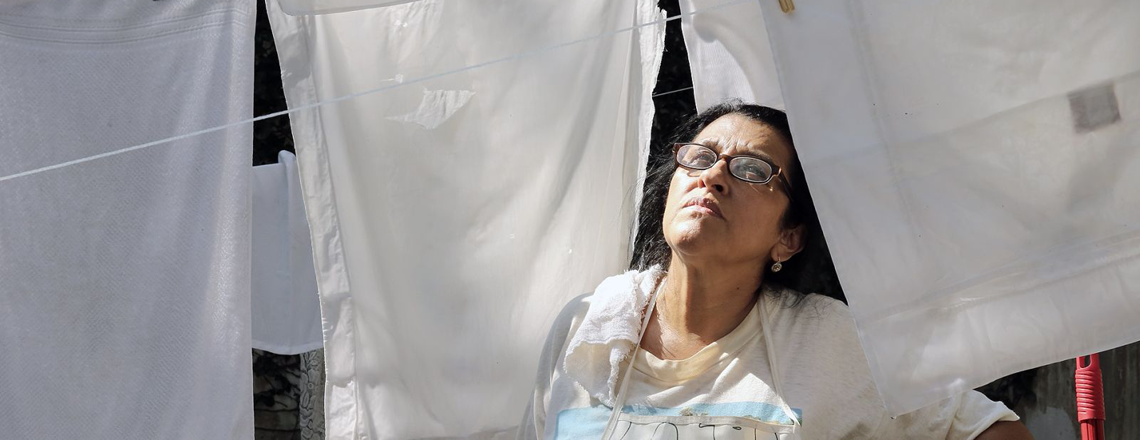
Sharply observant and always surprising; mixes dry humor, aching drama, and stinging social commentary in its clashes between classes and generations.
Val (Brazilian TV star Regina Casé) has been housekeeper to a wealthy Sao Paulo couple for so long, she has practically raised their son, Fabinho (Michel Joelsas), who is just about to go off to university. But now, Val’s own daughter, Jéssica (Camila Márdila), asks to come stay with Val — who lives in a small room in her employers’ home — in order to take her own university entrance exams. The domestic awkwardness is copious and varied as Jéssica descends upon the household in this sharply observant and always surprising film; writer-director Anna Muylaert mixes dry humor, aching drama, and stinging social commentary in its clashes between classes and generations. Val hasn’t seen or even spoken to her daughter in years, having left the child behind in her small town far away to be raised by others while she went off to find work, which only compounds Jéssica’s lack of respect for Val’s deference to her bosses, Bárbara (Karine Teles) and Carlos (Lourenço Mutarelli), or her coddling of Fabinho. And Jéssica’s presence seems to be exacerbating issues that have clearly been bubbling between Bárbara and Carlos for some time, and this seems likely to develop into a serious problem… Bypassing the clichés of many master-servant tales — for one, Val seems to truly love her employers even when they occasionally appear to resent the intimacy her presence invariably demands — The Second Motherbecomes a pungent portrait of modern family life and how little disruption it takes to unsettle apparent harmony.
Fonte: FlickFilosopher







